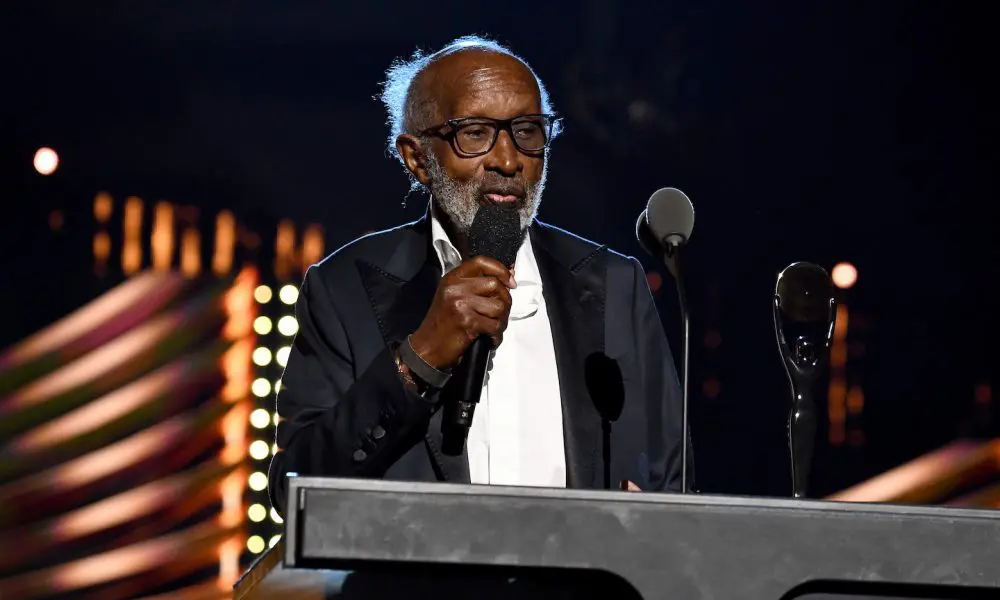Clarence Avant, Industry Giant And ‘Godfather Of Black Music,’ Dies At 92
The groundbreaking executive formed his own labels and advanced the careers of artists from Sarah Vaughan to Bill Withers and the S.O.S. Band.

Clarence Avant, whose work as a manager, label owner and beyond was instrumental to the success of countless R&B artists, died on Sunday at home in Los Angeles. He was 92.
Avant was often called the “Godfather of Black Music” for his role in advancing the careers of artists from Sarah Vaughan and Bill Withers to the S.O.S. Band and producers Jimmy Jam and Terry Lewis. He ran both the Sussex and Tabu labels and was chairman of Motown Records in the 1990s, and was recognized with the Recording Academy’s Grammy Salute to Industry Icons award in 2019. Two years later, he was inducted into the Rock and Roll Hall of Fame.
His family said in a statement: “Clarence leaves behind a loving family and a sea of friends and associates that have changed the world and will continue to change the world for generations to come. The joy of his legacy eases the sorrow of our loss.”
Avant was born on February 25, 1931 in Climax, North Carolina and moved to New Jersey in his teens, finding his first work in the music industry as a nightclub manager in the 1950s. Mentored by Joe Glaser, who managed Louis Armstrong for decades, Avant went on to work in management with Vaughan, Freddie Hubbard, Jimmy Smith, Lalo Schifrin, Kim Weston, and many others. In New York, he was also an adviser, board member, and executive of the National Association of Radio Announcers (NARA).
By now based in Los Angeles, he gained an increasing reputation as a broker of deals for Black-owned businesses, overseeing the pact between Venture Records, run by former Motown writer, producer, and A&R head “Mickey” Stevenson and MGM Records, and the sale of Stax Records to Gulf+Western. Late in 1969, Avant founded his own Sussex label, distributed by Buddah, and discovered Withers, developing him into a major crossover star of the 1970s.
Other Sussex signings included former Motown “Funk Brother” Dennis Coffey, who scored a big hit in 1971 with “Scorpio,” with the Detroit Guitar Band, and soft rockers Gallery, best known for their US Top 5 single of 1972, “Nice To Be With You.” Avant also founded KAGB-FM (Avant Garde Broadcasting), which was one of America’s first Black-owned radio stations in the U.S.
When Sussex ceased trading, he swiftly formed Tabu Records, finding notable success with Atlanta soul collective the S.O.S. Band and developing the label’s distinctive sound via rising producers Jam & Lewis. They helped to shape the sound of many of Tabu’s roster, also including Cherrelle and Alexander O’Neal, and after other label associations, Tabu came under the aegis of Motown for a brief time in the 1990s, during Avant’s tenure as chairman there. He was also the first African-American on the International Management Board for PolyGram.
Following the news of his passing, Sir Lucian Grainge, Chairman and CEO of Universal Music Group, shared an official statement paying tribute to Avant’s unparalleled legacy.
“Clarence Avant’s extraordinary musical legacy has been felt for decades and will be felt for decades to come. He will be remembered as both a brilliant catalyst and protector of culture. His understated yet powerful influence transcended music, spanning the worlds of entertainment, sports, and politics. I am profoundly grateful for his friendship and mentorship. We have lost an incomparable visionary whose brilliance, humor, irreverence, and love made the world a better place.”












